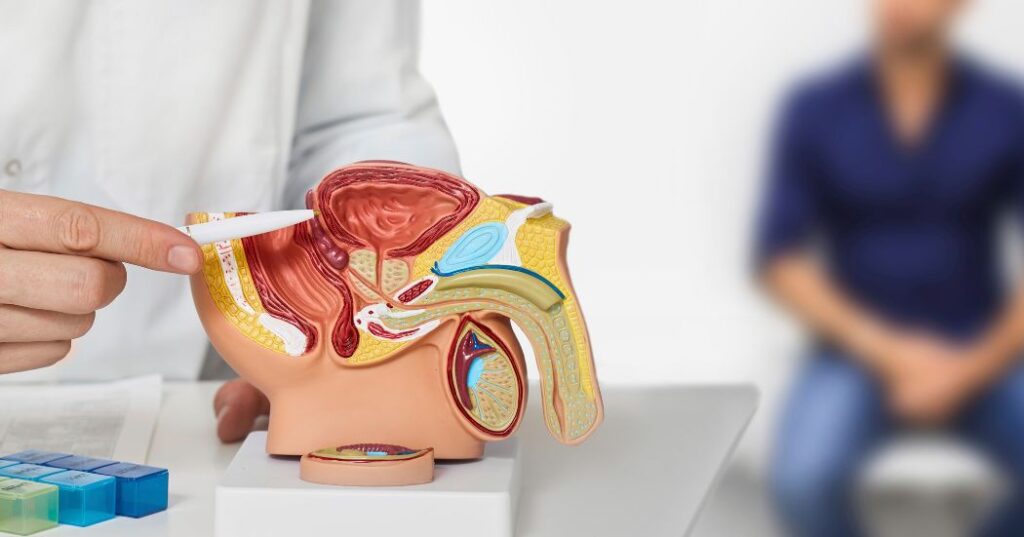When it comes to men’s health, the prostate often doesn’t get the attention it deserves. Yet, maintaining a healthy prostate is crucial for overall well-being and quality of life. The good news? You can make a significant impact on your prostate health simply by tweaking your diet.
I’ve delved into the world of nutrition and discovered that what you eat can play a pivotal role in keeping your prostate in top shape. From antioxidant-rich fruits to omega-3-packed fish, certain foods have been shown to support prostate health naturally. By incorporating these dietary changes, men can take proactive steps toward a healthier future.
In this article, I’ll explore the key foods and nutrients that can help improve prostate health, providing you with practical tips and insights to make informed choices. Let’s dive into the world of nutrition and unlock the secrets to a healthier prostate through diet.
Understanding Prostate Health
Prostate health’s vital for men, influencing urinary function and sexual health. This small gland, located below the bladder, surrounds the urethra. As men age, the prostate can enlarge, leading to conditions like benign prostatic hyperplasia (BPH). Prostate cancer also poses significant health risks. Both BPH and prostate cancer can impact quality of life, making awareness crucial.
Dietary choices play a significant role in maintaining prostate health. Foods rich in antioxidants, such as tomatoes and berries, help reduce oxidative stress. Omega-3 fatty acids, found in fatty fish, support prostate wellness by reducing inflammation. Making conscious decisions about what we consume can lead to better prostate health and lower risks of associated ailments.
Brands like Ben’s Natural Health emphasize the importance of nutrition in supporting prostate function. They provide products that focus on natural ingredients, which align with the goal of promoting prostate wellness through diet. By prioritizing these dietary strategies, men can actively contribute to their overall well-being and long-term prostate health.
The Role Of Diet In Prostate Health
Diet significantly impacts prostate health. Nutrient-rich foods can maintain a healthy prostate and reduce the risk of related conditions.
Key Nutrients For Prostate Health
Vitamins and minerals play a crucial role:
- Antioxidants, like vitamin E and selenium, combat oxidative stress. Found in nuts and whole grains, these nutrients support prostate functions.
- Omega-3 fatty acids, present in fatty fish, help reduce inflammation, a common cause of prostate issues.

- Zinc, available in pumpkin seeds, aids in improving prostate functions and hormone regulation.
Foods To Include In Your Diet
Incorporating prostate-friendly foods boosts overall health:
- Tomatoes contain lycopene, linked to reduced prostate cancer risk.
- Berries, rich in antioxidants, protect cells from damage.
- Fatty fish, providing omega-3s, can decrease inflammation.
- Pumpkin seeds offer zinc, essential for prostate tissue maintenance.
Prioritizing these foods aligns with the philosophy of Ben’s Natural Health, which advocates natural ingredient integration for wellness. Focus on these dietary choices to enhance prostate health effectively.
Implementing Dietary Changes
Men aiming for better prostate health can benefit from strategic dietary changes. These changes support the prostate by incorporating essential nutrients and promoting overall wellness.
Tips For Meal Planning
Meal planning ensures a consistent intake of prostate-friendly nutrients. Focus on incorporating:
- Colorful Fruits and Vegetables: Aim for tomatoes and berries rich in antioxidants like lycopene and vitamin C. These nutrients combat oxidative stress.
- Lean Proteins: Opt for fatty fish such as salmon or mackerel, which contain omega-3 fatty acids essential for reducing inflammation.
- Whole Grains and Legumes: Increase fiber intake through options like quinoa and lentils to promote digestive health.
- Nuts and Seeds: Include sources of zinc and selenium, such as pumpkin seeds and Brazil nuts, supporting hormone regulation and prostate function.
Experiment with various recipes and flavors to prevent monotony and keep meals exciting.
Sample Diet Plan
A balanced diet plan provides structure while ensuring nutrient diversity. Consider this sample plan:
|
Meal |
Food Choices |
|
Breakfast |
Oatmeal with berries and walnuts, or a smoothie with spinach and bananas |
|
Lunch |
Grilled salmon with quinoa salad, or a turkey sandwich on whole-grain bread |
|
Snack |
A handful of pumpkin seeds or a small serving of Greek yogurt with honey |
|
Dinner |
Baked chicken breast with steamed broccoli and sweet potatoes |
|
Evening Snack |
A small apple or a few Brazil nuts |
Integrating these dietary changes alongside professional guidance like Ben’s Natural Health can significantly improve prostate health outcomes.
Potential Diet Pitfalls
Diet plays a crucial role in maintaining prostate health, but potential pitfalls can undermine benefits if not addressed.

Understanding which foods to avoid and debunking common misconceptions ensures an effective prostate-friendly diet.
Foods To Avoid
Certain foods can negatively impact prostate health. Processed meats, for example, contain preservatives and chemicals that increase cancer risk. High-fat dairy products contain hormones that may influence prostate enlargement. Refined grains lack nutrients and can contribute to inflammation. It’s important to minimize these foods when planning meals. By prioritizing natural, less processed options, like those advocated by Ben’s Natural Health, you can better support prostate wellness.
Common Misconceptions
Misunderstandings about diet and prostate health are common. For instance, some believe all fats are harmful, but healthy fats like omega-3s are beneficial. Many think supplements alone can replace a balanced diet; however, real foods offer a broader range of nutrients and health benefits. Busting these myths highlights the importance of informed dietary choices in maintaining prostate health.
